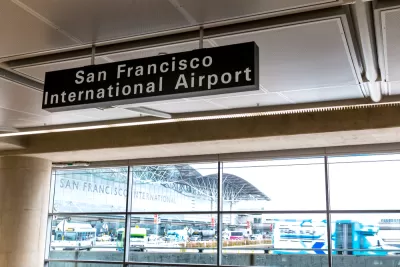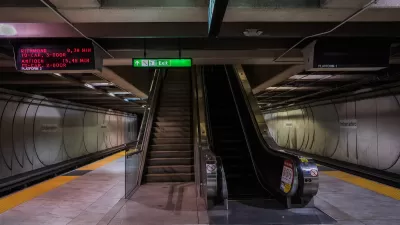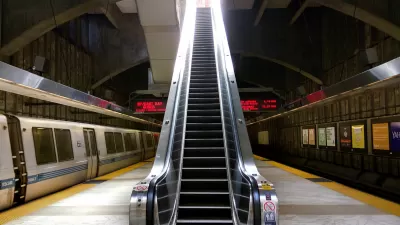With weekday commuter ridership still lagging far below 2019 levels and remote work not going anywhere anytime soon, the agency plans to increase train frequencies on weekends and reduce some weekday service.

The Bay Area Rapid Transit (BART) agency, which serves the San Francisco Bay Area, plans to adjust its service to better serve weekend travelers as weekday ridership remains low, reports Adam Shanks in the San Francisco Examiner. “With office vacancy rates in downtown San Francisco climbing to record highs, BART is planning to direct its finite resources to better serve those who rely on the transit agency during off-peak hours.”
Shanks continues, “Under a proposal introduced this week, BART would reduce most lines from four to three trains per hour during the day, but increase service from two to three trains per hour at night and on the weekends.”
In March of this year, weekday ridership was only at 37 percent of pre-pandemic levels. “The yellow line, which runs between Millbrae and Antioch, would be the only one spared from the weekday daytime cuts. It’s BART’s most popular ride, with the busiest train seeing a passenger load more than three times that of the most-packed Orange line train, for example.” BART also plans to increase frequencies on the yellow line and to the region's airports.
Like many other transit agencies, “BART is facing a budget deficit of about $78 million in 2025, when its tranche of federal COVID-19 aid runs dry.”
FULL STORY: BART Plans to Increase Weekend Service, Decrease Service on Weekdays

Maui's Vacation Rental Debate Turns Ugly
Verbal attacks, misinformation campaigns and fistfights plague a high-stakes debate to convert thousands of vacation rentals into long-term housing.

Planetizen Federal Action Tracker
A weekly monitor of how Trump’s orders and actions are impacting planners and planning in America.

In Urban Planning, AI Prompting Could be the New Design Thinking
Creativity has long been key to great urban design. What if we see AI as our new creative partner?

King County Supportive Housing Program Offers Hope for Unhoused Residents
The county is taking a ‘Housing First’ approach that prioritizes getting people into housing, then offering wraparound supportive services.

Researchers Use AI to Get Clearer Picture of US Housing
Analysts are using artificial intelligence to supercharge their research by allowing them to comb through data faster. Though these AI tools can be error prone, they save time and housing researchers are optimistic about the future.

Making Shared Micromobility More Inclusive
Cities and shared mobility system operators can do more to include people with disabilities in planning and operations, per a new report.
Urban Design for Planners 1: Software Tools
This six-course series explores essential urban design concepts using open source software and equips planners with the tools they need to participate fully in the urban design process.
Planning for Universal Design
Learn the tools for implementing Universal Design in planning regulations.
planning NEXT
Appalachian Highlands Housing Partners
Mpact (founded as Rail~Volution)
City of Camden Redevelopment Agency
City of Astoria
City of Portland
City of Laramie





























